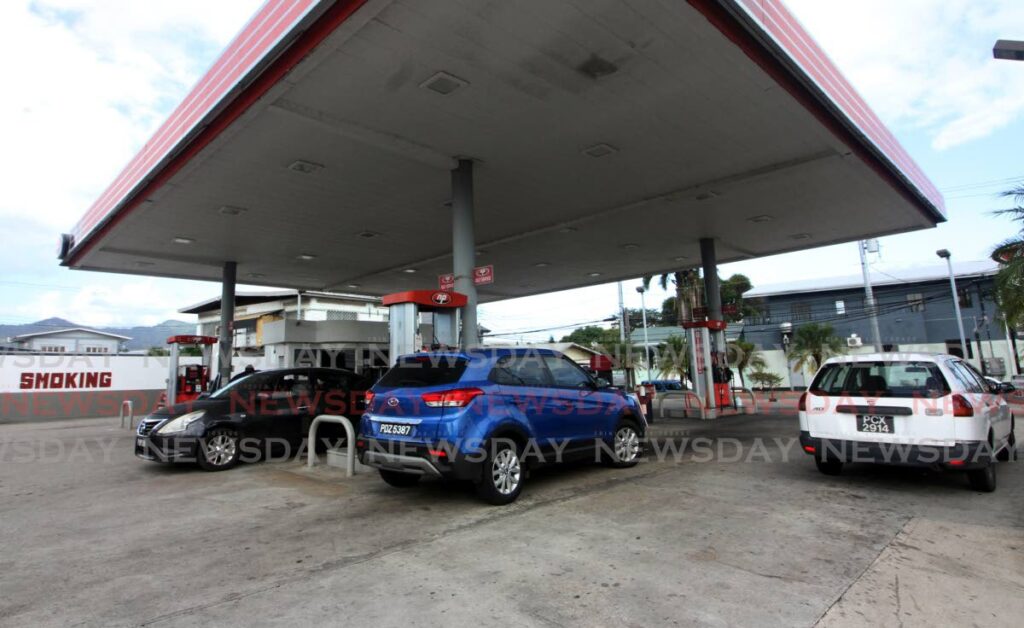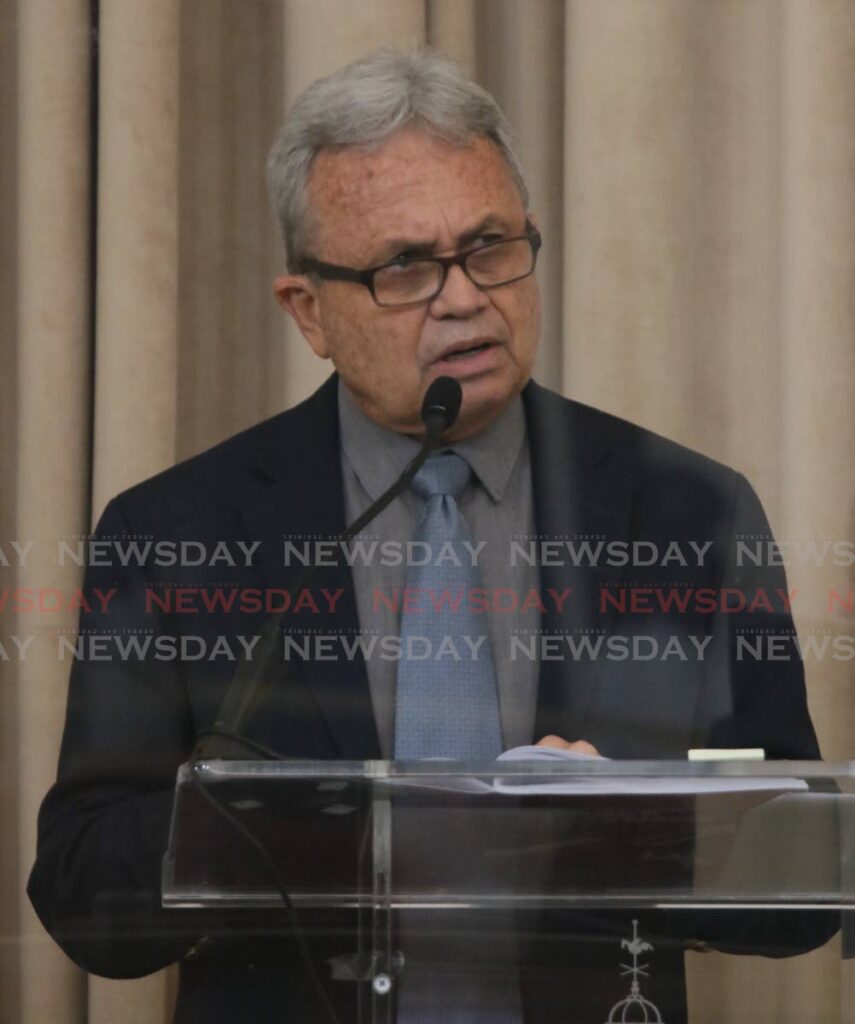Fuel prices to rise on April 19 – PRESSURE AT THE PUMP

EFFECTIVE April 19 – the day after Easter Monday – there will be an increase in fuel prices, Finance Minister Colm Imbert announced in the House of Representatives on Friday.
Current prices per litre, for premium gasoline, super gasoline and diesel are $5.75, $4.97 and $3.41 respectively.
This is the fourth fuel price adjustment implemented since the PNM returned to office in September 2015.
On April 19, the price of premium gasoline and super gasoline will be adjusted by $1 per litre to $6.75 and $5.97, respectively, while the price of diesel will be adjusted by $.50 cents to $3.91 per litre. The price of kerosene will be adjusted from $1.50 to $3.50 per litre.
The price of liquefied petroleum gas (LPG) remains fixed at $21 for a 20lb cylinder of cooking gas for domestic customers. The Energy Ministry will examine what will be an appropriate LPG price for commercial customers.
These decisions were taken by Cabinet on Thursday.
Imbert said Government has done its best to protect citizens from the full impact that increasing fuel prices would have on the cost of goods and services.
"Government is cognisant of the effect of an increase in the price of fuel on consumers, notwithstanding the fact that a fuel subsidy is a regressive measure," he told the House.
He reminded MPs that when the 2022 budget was presented last October, Government indicated there would be a liberalisation of domestic fuel prices.
Imbert said that in October, it was not expected anywhere, that oil prices would increase by over 60 per cent in five months. This was attributed to Russia'invasion of Ukraine on February 25.
When the 2022 budget was finalised last September, Imbert recalled that the oil price was just over US$70 per barrel. Two months later, it dropped to US$65 per barrel. The budget was pegged against a US$65 per barrel oil price and a US$3.75 per mmbtu natural gas price.
Concerns about oil prices were also influenced by climatic and global economic factors which pre-dated the Ukraine invasion, he pointed out.
Imbert said an adverse effect of low levels of oil production and high oil prices is an increase in the fuel subsidy, which must be paid out of tax-derived revenues. The price of motor fuels is affected by oil prices. LPG prices are affected by natural gas prices.

"At current commodity prices, contrary to persistent misinformation from some quarters, all of these fuels are still heavily subsidised, even as we have already reduced the levels somewhat, at an earlier time," Imbert said.
He said the highest subsidies are on LPG and kerosene, insisting that, "there remains substantial subsidy on fuels used in transportation."
In the absence of a subsidy, he said, "The retail prices of premium gasoline should vary from $6.18 per litre at an oil price of US$80 per barrel to $7.58 per litre at an oil price of US$100 per barrel."
Unsubsidised diesel prices, he said, would vary from $5.35 per litre at an oil price of US$80 per barrel to $6.58 per litre at an oil price of US$100 per barrel.
To maintain fuel prices at current levels, Imbert said "requires a substantial amount of government subsidy."
Imbert estimated that the money needed to subsidise the one-billion litres of fuel used annually in TT, "varies from $922m at an oil price of US$80 per barrel, to $1.94b for an oil price of US$100 per barrel."
He said Government will have to pay approximately $1.69b from tax revenues to maintain the fuel subsidy. "This level of subsidy is unbudgeted and unsustainable," he declared.
While a fuel subsidy is a regressive measure, Government was also aware of the effect increasing fuel prices would have on consumers
"Accordingly, the Government is of the view that the liability for any fuel price adjustment should be shared more or less equally. The public should be asked to pay half the cost of the increased market prices of fuel, while the Government absorbs the other half."
Imbert said the partial adjustment would be "sufficient to allow an equal distribution of the cost."
These price adjustments will still require a government subsidy of approximately $840 million this year.
To encourage motorists to conserve fuel and alleviate the effect of increased fuel prices on citizens, Imbert said by mid-May, arrangements will be made "to allow for the waiver of taxes and customs duty on suitably sized imported hybrid motor cars, both new and used."
These concessions will not be available for owners or importers of high-end luxury hybrid cars. Further details would be provided at a later date.


Comments
"Fuel prices to rise on April 19 – PRESSURE AT THE PUMP"